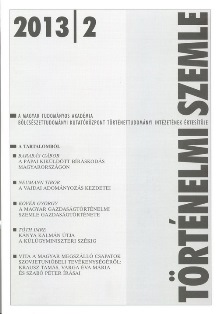A pápai kiküldött bíráskodás Magyarországon a kezdetektől a 13. század közepéig
Delegated Papal Jurisdiction in Hungary from the Origins to the Middle of the 13th Century
Author(s): Gábor BarabásSubject(s): History
Published by: Magyar Tudományos Akadémia Bölcsészettudományi Kutatóközpont Történettudományi Intézet
Summary/Abstract: The study examines the general emergence and conceptual background of papal delegated jurisdiction, and the operation of the delegated tribunal in Hungary from the origins to 1241. The first, general part is justified not only by the absence of any attempt at a systematic inquiry in Hungarian, but also by the fact that it greatly facilitates the understanding of the features which characterised the Hungarian practice. With regard to the conceptual background, one of the basic findings is that the foundation of the system of delegated papal jurisdiction was constituted by the appeal of litigants to the Holy See in order to secure papal authority for the judgement made in their case. After sporadic beginnings in the 11th century, the system greatly expanded during the pontifi cate of Alexander III, and assumed a fixed framework after the reforms of Innocent III (the establishment of various offices and a special literacy). The study also describes the characteristics which can be observed in the selection and activity of the judges, in the course of litigation, in the legal background and in the sources. After these general problems, the study examines the emergence of delegated papal jurisdiction in Hungary, and the development of its features, from its beginnings under the pontificate of Alexander III until the middle of the 13th century. At fi rst the characteristic causes of litigation are examined, whereupon those aspects are scrutinized in which the situation in Hungary diverged from what was generally common in the western church. These, together with further aspects of the analysis, such as the selection of judges to preside in the various cases and their repartition in terms of dignity, are treated according to the order of things dictated by the general practice. The author also describes some aspects connected to the practical development of the procedure, which exerted considerable influence upon the formation of different kinds of litigation, from the emergence of the procedure itself (eg. the role of the auditores and of audientia) to other characteristics of the litigation such as the various excuses and appeals.
Journal: Történelmi Szemle
- Issue Year: 2013
- Issue No: 02
- Page Range: 175-199
- Page Count: 25
- Language: Hungarian

